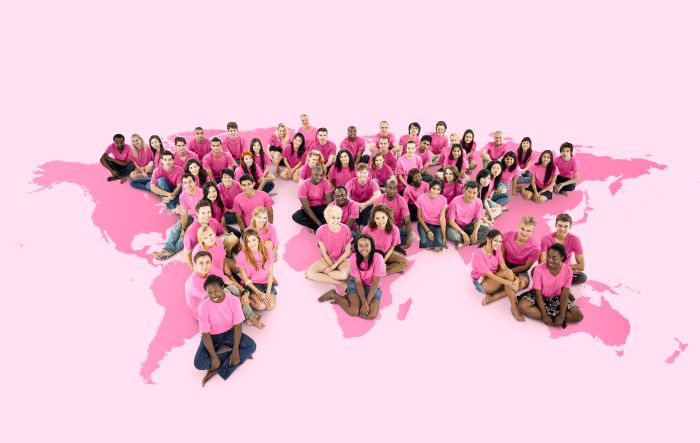
Breast cancer is one of the most common cancers affecting women worldwide, and despite significant medical advancements, millions of new cases are diagnosed every year. Yet, even with the scale of the challenge, stigma, fear, and misinformation often prevent open conversations about the disease. This is where breast cancer awareness plays a vital role—not just in saving lives through early detection, but also in providing education, empowering communities, and creating a supportive environment for those impacted.
In this article, we will explore why breast cancer awareness is essential, how it impacts prevention and treatment, and what individuals and communities can do to support the cause.
Understanding Breast Cancer and Its Impact
Breast cancer occurs when abnormal cells in the breast grow uncontrollably, forming a tumor that may invade surrounding tissues or spread to other parts of the body. While both men and women can develop breast cancer, women are far more likely to be affected.
According to the World Health Organization, breast cancer is the most frequently diagnosed cancer among women globally. The statistics are sobering, but they also highlight an important truth: with timely detection and access to proper treatment, survival rates are significantly higher. This is why breast cancer awareness campaigns are not just symbolic—they are life-saving initiatives.
Why Breast Cancer Awareness Matters
- Encouraging Early Detection
One of the most powerful benefits of awareness campaigns is that they encourage women to prioritize regular self-examinations and screenings such as mammograms. Early detection dramatically increases the chance of successful treatment, often before cancer spreads. - Breaking Stigma and Fear
In many societies, discussions around breast health remain taboo. Awareness helps break the silence, allowing women to speak openly about symptoms, seek medical advice sooner, and support each other without shame. - Promoting Education and Empowerment
Awareness is not only about knowing that breast cancer exists—it is about understanding risk factors, symptoms, and available treatment options. An educated community is more empowered to make informed health decisions. - Mobilizing Research and Funding
High-profile awareness campaigns, such as those during Breast Cancer Awareness Month in October, help raise funds for research, treatment advancements, and patient support programs. This collective effort has been critical in improving survival rates over the years.
Recognizing the Signs and Symptoms
Part of building breast cancer awareness is helping people recognize early warning signs. Common symptoms include:
- A lump or thickening in the breast or underarm
- Changes in breast size or shape
- Dimpling or puckering of the skin
- Unexplained pain in the breast or nipple
- Discharge other than breast milk
Not every change indicates cancer, but any unusual development should be checked by a healthcare professional immediately. Awareness ensures that women know what to look for and act quickly.
The Role of Regular Screenings
Medical professionals strongly recommend routine breast cancer screenings, particularly for women over 40 or those with a family history of the disease. Screenings such as mammograms, ultrasounds, and MRIs can detect tumors that may not be felt during a self-exam.
Awareness campaigns remind people of the importance of scheduling these checkups, often offering free or subsidized screening programs during awareness months. Without these reminders, many women might delay screenings until symptoms are advanced, making treatment more difficult.
Community Support and Advocacy
Breast cancer awareness goes beyond individual health—it strengthens communities. Support groups, awareness walks, fundraising marathons, and educational workshops all contribute to building solidarity. These initiatives reassure patients and survivors that they are not alone, while also motivating society to invest in better healthcare infrastructure.
Advocacy also plays a crucial role. By raising their voices, survivors and supporters can influence government policies, ensuring wider access to screenings, affordable treatments, and mental health services for patients and their families.
Beyond October: Making Awareness a Year-Round Effort
Although October is recognized globally as Breast Cancer Awareness Month, the fight against breast cancer is not confined to a single month. Awareness must be continuous. Year-round education in schools, workplaces, and community centers helps sustain the momentum.
Healthcare providers, non-profits, and policymakers must collaborate to make screening and treatment accessible at all times. Employers can contribute by encouraging workplace health programs, while individuals can continue spreading information through social media and community engagement.
How You Can Contribute to Breast Cancer Awareness
Every person has a role to play in supporting awareness efforts. Some practical ways include:
- Sharing educational resources online to spread reliable information
- Encouraging loved ones to schedule regular checkups
- Participating in charity events or donating to organizations funding research
- Wearing the pink ribbon symbol to show solidarity
- Offering emotional support to those undergoing treatment
By taking small steps, individuals can make a big difference in promoting health and saving lives.
Conclusion: Turning Awareness Into Action
Breaking the silence around breast cancer is not simply about talking—it is about taking meaningful action. Breast cancer awareness ensures that people understand the importance of early detection, recognize the signs, and feel empowered to seek treatment without fear or stigma. It also drives community support, research funding, and stronger healthcare policies.
In the end, awareness is not just about spreading knowledge—it is about saving lives. When communities unite to prioritize education, screenings, and compassion, we move closer to a world where fewer families are devastated by breast cancer.

